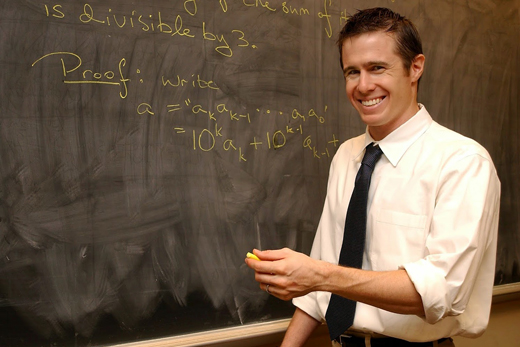When investigative reporter Lawrence Mower decided to dig into public records for the winners of the Florida Lottery, he noticed an intriguing pattern. Over a decade, a few names kept popping up as winners of all kinds of games. The most prolific of these winners, according to the lottery data, was a man who claimed an incredible 252 prizes during six years, for a total take of $719,000.
"If you're winning like this in Las Vegas, they're going to take you into a back room and find out how you're cracking the game," Mower said.
But when Mower asked a Florida lottery official about what seemed like a suspicious number of repeat wins by some players he was told that they could just be lucky.
Mower and his colleagues at the Palm Beach Post wanted to find out exactly how lucky these dominant players were, but they needed help calculating the odds.
"I starting looking for a mathematician who had dealt with odds and the lottery," Mower says. "That's how I found Skip."
Skip Garibaldi, a professor in Emory's Department of Mathematics and Computer Science and associate director of UCLA's Institute for Pure and Applied Mathematics, was happy to work on the project.

Emory mathematician Skip Garibaldi helped do the math for a Palm Beach Post investigation of suspicious wins in the Florida Lottery. Garibaldi has since started eyeing data from the Georgia Lottery. Emory Photo/Video.
